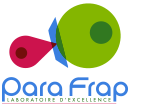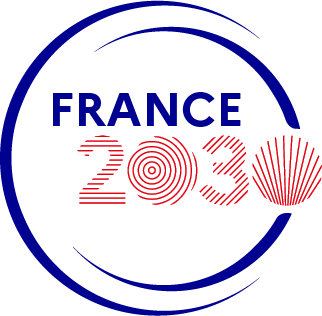

Gerald Spaeth, head of the "Molecular Parasitology and Signalling" unit at the Institut Pasteur Paris, has been awarded a Synergy grant from the European Research Council (ERC) for the project "DECOLeishRN - Decoding epistatic genome/RNome interactions in ekaryotic fitness gain using Leishmania parasites as a unique model system". This project is funded at over 9 millions Euros and will be conducted in collaboration with two Israeli teams led by Shulamit Michaeli (Bar-Ilan University) and Yitzhak Pilpel (Weizmann Institute of Science).
Exploiting the unique biology of the protozoan parasite Leishmania as a model system, the project will generate unprecedented insight into the role of genome instability in eukaryotic adaptation by combining experimental evolution, analyses of the non-coding RNA, network modelling and cutting-edge, single cell sequencing. The project aims to uncover the molecular filter that can mitigate toxic effects of genome instability while promoting beneficial ones, thus resolving a long-standing question in infection and cancer biology.
The six-year project (2023-2029) is poised to reveal complex and dynamic interactions between genomic, epitranscriptomic and phenotypic adaptation of these important parasites, and the role of stress-adapted ribosomes and non-coding RNAs – especially anti-sense regulators – that compensate for detrimental gene dosage changes. The scientists will further examine whether the parasite has the capacity to predict and prepare in advance to changes in environmental conditions and the switch between its hosts. The study of pathogen evolution within a mammalian host will provide an innovative framework for the discovery of complex biomarker candidates linked to Leishmania virulence and drug resistance. Exploiting genome instability for adaptation is common to other diseases-causing microbes and cancer. This ERC Synergy grant will thus deliver a blueprint to study how chaotic genome instability is harnessed for adaptation and to escape unfavorable environmental conditions.
Call for Applications: New Junior Research Groups at Institut Pasteur The Institut Pasteur has launched an international call to recruit new junior group leaders.This is a unique opportunity for high-potential scientists to...
JOB : Ingénieur·e d’étude / Research Engineer – Mosquito Immunity (IBMC, Strasbourg) 🇫🇷 Le laboratoire Mosquito Immune Responses recrute un·e ingénieur·e d’étude à l’IBMC (Strasbourg). La personne recrutée sera en...
Applications are now open for the 2026 Biology of Parasitism (BoP) course, taking place June 12–July 23, 2026 at the Marine Biological Laboratory in Woods Hole, MA.This intensive 6-week program offers PhD students and postdocs advanced training in...
Newcastle University offers a full-time, fixed-term position (3 years) for a Research Assistant or Research Associate in Molecular Parasitology — funded by the Medical Research Council (MRC). About the Opportunity Location:...
Multidisciplinary PhD opportunity in the fields of infectious diseases, gene regulations and molecular signalisation. Fully Funded 4-Year PhD at the University of York A fully funded PhD opportunity is available at the...
The EMBO Workshop 2025 “Host–Parasite Relationship: From Mechanisms to Control Strategies”, took place from October 5–8, 2025, on the beautiful Île des Embiez (France). Organized within the framework of the LabEx ParaFrap and...
Postdoc (M/F) in molecular and biochemical parasitology (Toxoplasma gondii) A 24-month post-doctoral position starting on January 2026 and funded by the French National Research Agency (ANR) is available in the in the...
Postdoc (M/F) Molecular and cell biology in Trypanosoma brucei A 24-month post-doctoral position starting on November 1st 2025 (or before) and funded by the French National Research Agency (ANR) is available in the...
Postdoc (M/F) in molecular biology in P. falciparum Workplace: MONTPELLIER Contract Period: 24 months Expected date of employment: 1 October 2025 Proportion of work: Full Time Remuneration: Starting from...
Registration is now open for the EMBO Workshop "Host-Parasite Relationship: From Mechanisms to Control Strategies," supported by...

© 2023. All rights reserved MLCOM
Notre site LabEx ParaFrap utilise des cookies pour réaliser des statistiques de visites, partager des contenus sur les réseaux sociaux et améliorer votre expérience. En refusant les cookies, certains services seront amenés à ne pas fonctionner correctement. Nous conservons votre choix pendant 30 jours. Vous pouvez changer d'avis en cliquant sur le bouton 'Cookies' en bas à gauche de chaque page de notre site. En savoir plus
Ce site utilise des cookies pour assurer son bon fonctionnement et ne peuvent pas être désactivés de nos systèmes. Nous ne les utilisons pas à des fins publicitaires. Si ces cookies sont bloqués, certaines parties du site ne pourront pas fonctionner.
Ce site utilise des cookies de mesure et d’analyse d’audience, tels que Google Analytics et Google Ads, afin d’évaluer et d’améliorer notre site internet.
Ce site utilise des composants tiers, tels que NotAllowedScript6973e8bb63d32ReCAPTCHA, Google NotAllowedScript6973e8bb63a26Maps, MailChimp ou Calameo, qui peuvent déposer des cookies sur votre machine. Si vous décider de bloquer un composant, le contenu ne s’affichera pas
Des plug-ins de réseaux sociaux et de vidéos, qui exploitent des cookies, sont présents sur ce site web. Ils permettent d’améliorer la convivialité et la promotion du site grâce à différentes interactions sociales.
Ce site web utilise un certain nombre de cookies pour gérer, par exemple, les sessions utilisateurs.

